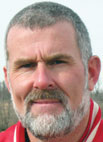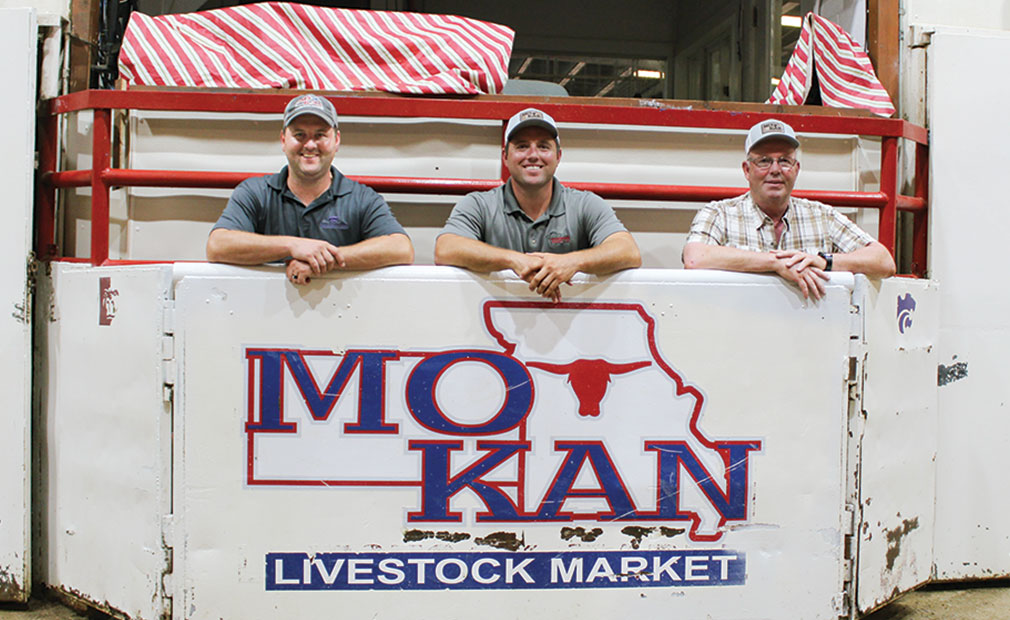
Eric and Kathy Vimont moved their family from western Washington state to 68 acres between Mt. Vernon and Aurora, Mo., almost three years ago, and have had no regrets. Their goal was to establish a small, sustainable family farm that they could pass on to their son and daughter. Thus was born “Pasture Nectar Farm," where the family offers high quality raw milk, grass-fed beef, pastured hen eggs and seasonal fresh vegetables — when Kathy has time to put in a garden.
Eric explained, “I grew up in urban Portland, Ore., but knew early on that I wanted to be in the country. When I left home I worked land in western Washington, but found that it needed full time irrigation to grow the pasture needed for grass-fed beef. So I looked around and found Missouri. Everything we needed was here for ecologically sound farming, and we like it a lot. Our children prefer it, too.” Kathy homeschools son Jake, 12, and daughter Hannah, 8. Both children help with the dairy and farm operation as well.
One piece of the past came with them from Washington — their prized Milking Shorthorn dairy cow. “This is an old breed, dating back to the Middle Ages in England and Europe. They are about the best double-purpose breed, for milking and beef. They are built thicker, hold their condition better when fed on grass and alfalfa, give a very high quality milk and are calm and gentle. Because we want to farm the natural, old-fashioned way by feeding our cows grass, the Milking Shorthorns are ideal for us,” said Eric. “We have nine milking cows and five dry cows right now. The raw milk is our centerpiece, our focus, so the quality has to be the best.”
To keep the herd strong and growing, Eric usually buys high quality, young Milking Shorthorn bulls. “I’ve not had high success rates with AI. My feeling is it’s better to breed with a good bull than not breed with a great bull."
The Grass
Eric stressed the three important foundational elements that make his raw milk premium quality. “First is the grass. Everything we do revolves around the grass. The best way to use it is to let the cows eat it. If you feed cows the right food your end product will be high quality.” Eric and Jake make sure the milking cows get first chance at the pastures during growing season for best nutrition. They’re moved in the morning and afternoon. Then the dry cows go into the pasture, and then the beef steers, and finally, Milking Shorthorns, follow. The pastures are a mix of clover and grass — fescue, bermuda, orchard and crab.
Cleanliness
Eric keeps his milk barn spotless, hosing it down often during the milking process. Before milking, he washes the udder and teats with an iodine mixture several times, making sure to get all dirt washed away. After milking, the cow’s teats are dipped into another iodine solution with emollients to help prevent disease, keep the cow’s skin soft and prevent chapping. The cleaner the milk, the longer the shelf life. The shelf life of their raw milk is two to three times greater than pasteurized milk.
The Cooling Process
How quickly the milk is cooled, Eric explained, extends the shelf life and keeps bad bacteria to a minimum. Eric has discovered that he can cool the milk “just right” in a freezer that he fills with water and using a pond pump, circulates the water at just the right temperature without actually freezing. The jars go into it right after they are filled.
“Our raw milk is produced in an all-enclosed system, until we fill the jars. It goes from the cow directly through a filter into a bulk tank that we purchased from Belgium. In fact, I call this a micro-dairy. We are using the old European style of milking here.”
The gallon "Ball" milk jars are reused by customers, who bring them back to the Vimonts clean and sterilized every week. “We have about 70 families that buy our milk directly, and we produce about 13 to 15 gallons a day. Most customers come and pick up their milk — it gives them confidence in our product when they can see how careful we are about cleanliness and quality. Because we sell directly, we really work hard to give our best. It’s the most rewarding kind of relationship to have with your customers. We sell our beef and eggs at area farmer’s markets, and promote our raw milk there.”







